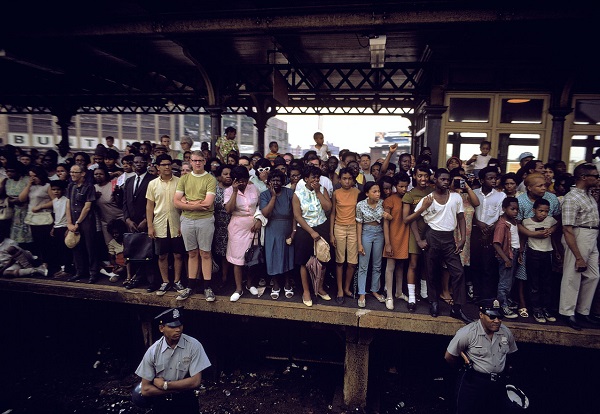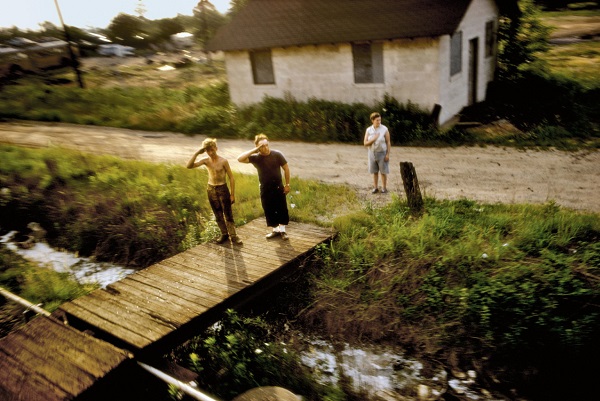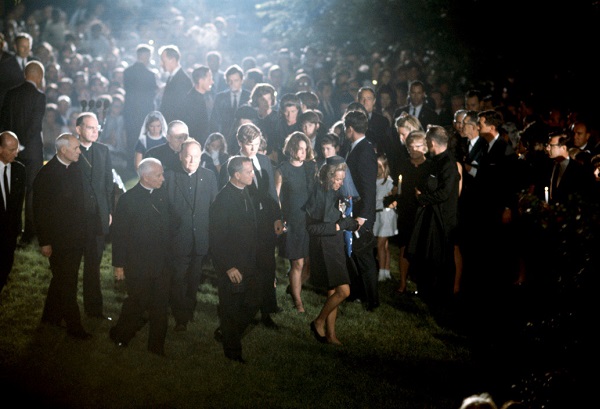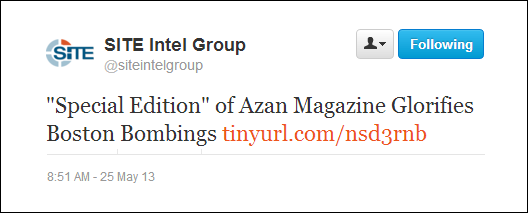How to process grief — lessons from an earlier age
Wednesday, June 6th, 2018[ by Charles Cameron — fifty years later, two kennedy deaths remembered ]
.
I had a couple of other posts in the works, but the one that was closest had a mean tinge to it so I set it on one side, sorry to have nothing to offer you this last Sunday, and consoling myself with music.
And so it was that I recalled one work of music, and searching it out on the web, came across another. Here Erich Leinsdorf announces the assassination of President John F Kennedy, and then, as though it’s the most natural thing in the world, turns to Beethoven, to the Eroica, and plays the Funeral March as a lens through which to process the most immediate, intimately Bostonian, grief:
As NPR testifies:
But what is most remarkable to me as as listener, hearing the Boston broadcast from Symphony Hall on that Friday afternoon, is the sense of how those people in that time and place — performer and audience member alike — process this shocking event collectively, in a way that is totally unimaginable to us 50 years later, as we learn each minute’s news within the weirdly solitary glow of our screens. First, we hear the gasps and shushes after BSO music director Erich Leinsdorf utters the words: “The president of the United States has been the victim of an assassination.” Second, a wave of groans and sighs after Leinsdorf continues, “We will play the funeral march from Beethoven’s Third Symphony” — as if the crowd’s shared response is that they couldn’t possibly have heard the first part right, but that then the orchestra’s change in repertoire confirms the awful, unimaginable truth. And then, for the next 14 minutes … utter silence, save for the incomparably somber music.
If we could filter our lives through such music..
**
And then as Cardinal Cushing celebrates a Pontifical Mass of Requiem for JFK, it is again Leinsdorf who conducts the music for that celebration — Mozart‘s glorious Requiem, from which extraordinary ceremonial this is the Dies Irae (turn down your volume control, this was recorded at a much louder volume range than the Beethoven IMO):
and, literally and emotionally, movingly tearful, the Lacrimosa:
Dona eis requiem..
If you wish to reach as deep as deep grief and process it, and Boston‘s response to the death of its favorite son President is anything to go by, Leinsdorf is your man, Beethoven the most immediate lens to hand, and the sacramental celebration with Cardinal Cushing as a no less impressive backup..
**
I would be remiss, however, were I to write only of high cultural music (no matter how popular) and high ceremonial religion here — of equal passion as I have been reminded recently was the spontaneous outpouring of love and reverence shown on the assassination of Bobby Kennedy, JFK‘s brother, as the train carrying his body passed from New York to DC for burial (a high ceremonial of the military variety) in Arlington National Cemetery. The crowds who turned out, in ones and twos, in clusters, both black and white, perhaps a million or two oin all, were captured by the extraordinary photographer and friend of the family Paul Fusco in close to a thousand images, of which these are but a few:
The train has been much in the news recently, with exhibits such as The Train: RFK’s Last Journey at the San Francisco Museum of Modern Art, reviewed in The train was moving mournful slow’: Exhibit shows haunting photos of Bobby Kennedy’s final journey and also described with selected images at Robert F. Kennedy’s Funeral Train, Fifty Years Later, along with the DVD One Thousand Pictures: RFK’s Last Journey drawn from Fusco’s work on that train, the publication of Chris Matthews‘ biography, Bobby Kennedy: A Raging Spirit, and MSNBC’s Headliners docu tribute to RFK.
Even the most unexpected moment, infused with love and grief, can ignite a spontaneous, informal ceremony of great power
Sub umbra alarum tuarum..
**
[ It has taken me several days to formulate this post, and I’m on fairly strong pain meds for my foot wound, so please blame them for any excessive typos or lack of coherence — I’m sure the general message comes through… ]









